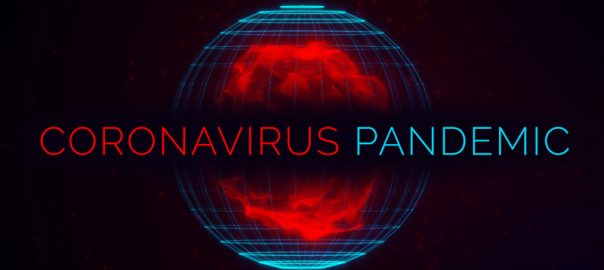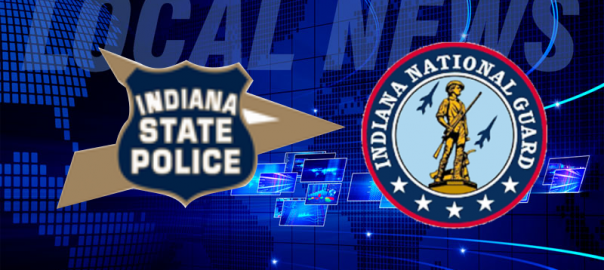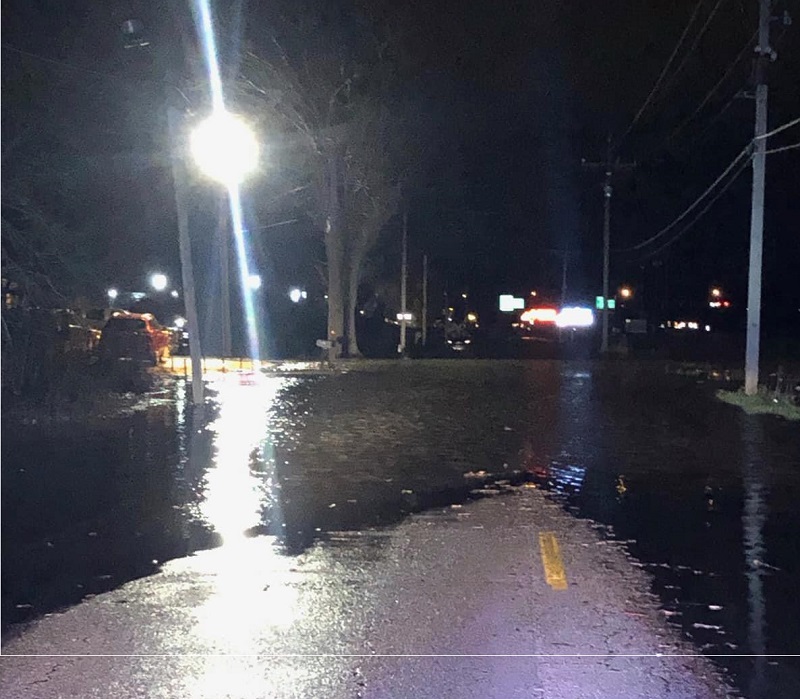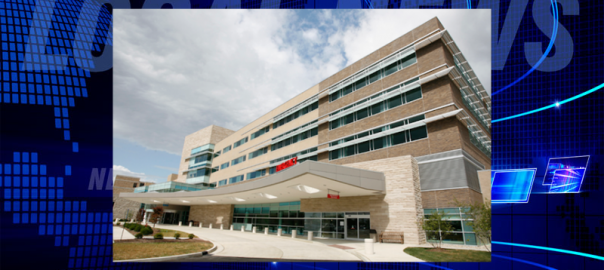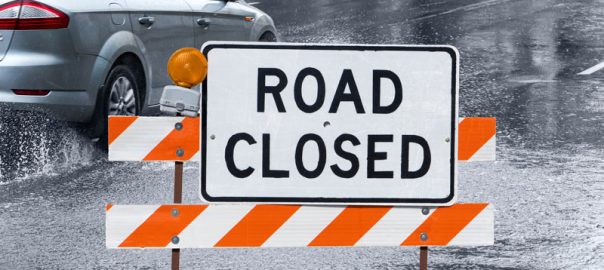Governor’s order: Definition of essential services
Excerpt from Indiana Executive Order 20-18 (March 23, 2020)
For the purposes of this Executive Order, the phrase “Essential Businesses and Operations” means Healthcare and Public Health Operations, Human Services Operations, Essential Governmental Functions, and Essential Infrastructure, as well as the following:
CISA List
On March 19, 2020, the U.S. Department of Homeland Security, Cybersecurity & Infrastructure Security Agency (“CISA”), issued a Memorandum on Identification of Essential Critical Infrastructure Workers During COVID-19 Response. The definition of Essential Businesses and Operations in this Executive Order includes all of the workers identified in that Memorandum, which may be found or accessed at the following link: https://www.cisa.gov/sites/default/files/publications/CISA-Guidance-on-Essential-Critical-Infrastructure-Workers-1-20-508c.pdf.
Stores That Sell Groceries and Medicine
Grocery stores, pharmacies, certified farmer’s markets, farm and produce stands, supermarkets, convenience stores, and other establishments engaged in the retail sale of groceries, canned food, dry goods, frozen foods, fresh fruits and vegetables, pet supplies, fresh meats, fish, and poultry, prepared food, alcoholic and nonalcoholic beverages, any other household consumer products (such as cleaning and personal care products), and specifically includes their supply chain and administrative support operations. This includes stores that sell groceries, medicine (including medication not requiring a medical prescription), and also that sell other non-grocery products, and products necessary to maintaining the safety, sanitation, and essential operation of residences and Essential Businesses and Operations.
Food, Beverage, and Agriculture
Food and beverage manufacturing, production, processing, cultivation, including farming, livestock, fishing, baking, and other production agriculture, including cultivation, marketing, production, and distribution of animals and goods for consumption; and businesses that provide food, shelter, and other necessities of life for animals, including animal shelters, rescues, shelters, kennels, and adoption facilities.
Organizations That Provide Charitable and Social Services
Businesses and religious and secular non-profit organizations, including food banks, when providing food, shelter, and social services, and other necessities of life for economically disadvantaged or otherwise needy individuals, individuals who need assistance as a result of this emergency, and people with disabilities.
Religious Entities
Religious facilities, entities and groups, and religious gatherings, provided they adhere to the CDC’s guidance on social gatherings.
Media
Newspapers, television, radio, and other media services.
Gas Stations and Businesses Needed for Transportation
Gas stations and auto supply, auto repair, farm equipment, construction equipment, boat repair, and related facilities, and bicycle shops and related facilities.
Financial and Insurance Institutions
Banks, currency exchanges, consumer lenders, including, but not limited to, credit unions, pawnbrokers, consumer installment lenders and sales finance lenders, title companies, appraisers, financial markets, trading and futures exchanges, payday lenders, affiliates of financial institutions, entities that issue bonds, related financial institutions, and institutions selling financial products. Also, insurance companies, underwriters, agents, brokers, and related insurance claims and agency services.
Hardware and Supply Stores
Hardware stores and businesses that sell electrical, plumbing, and heating material.
Critical Trades
Building, construction, and other trades, including, but not limited to, plumbers, electricians, exterminators, operating engineers, cleaning and janitorial staff for commercial and governmental properties, security staff, HVAC, painting, moving and relocation services, and other service providers who provide services that are necessary to maintaining the safety, sanitation, and essential operation of residences, Essential Activities, and Essential Businesses and Operations.
Mail, Post, Shipping, Logistics, Delivery, and Pick-Up Services
Post offices and other businesses that provide shipping and delivery services, as well as businesses that ship or deliver groceries, food, goods, vehicles, alcoholic and non-alcoholic beverages, or services to end users or through commercial channels.
Educational Institutions
Educational institutions (including public and private pre-K-12 schools, colleges, and universities) for purposes of facilitating distance learning, performing critical research, or performing essential functions, provided that social distancing of six-feet per person is maintained to the greatest extent possible.
This Executive Order is consistent with, and does not amend or supersede, any prior Executive Order regarding the closure of schools.
Laundry Services
Laundromats, dry cleaners, industrial laundry services, as well as laundry service providers.
Restaurants for Consumption Off-Premises
Restaurants, bars, taverns, and other facilities that prepare and serve food, but only for consumption off-premises, through such means as in-house delivery, third-party delivery, drive-through, curbside pick-up, and carryout. The foregoing is addressed in Executive Orders 20-04 and 20-10. The in-person dining prohibition shall be enforced under and pursuant to the process described in Executive Order 20-10.
Schools and other entities that typically provide food services to students or members of the public may continue to do so under this Executive Order on the condition that the food is provided to students or members of the public on a pick-up and takeaway basis only. Schools and other entities that provide food services under this exemption shall not permit the food to be eaten at the site where it is provided, or at any other gathering site due to the virus’s propensity to physically impact surfaces and personal property. This Executive Order is consistent with, and does not amend or supersede, prior Executive Orders regarding the closure of restaurants.
Supplies to Work from Home
Businesses that sell, manufacture, or supply products needed for people to work from home.
Supplies for Essential Businesses and Operations
Businesses that sell, manufacture, and/or supply other Essential Businesses and Operations with the support or materials necessary to operate, including computers, audio and video electronics, household appliances; IT and telecommunication equipment; hardware, paint, flat glass; electrical, plumbing and heating material; sanitary equipment; personal hygiene products; food, food additives, ingredients and components; medical and orthopedic equipment; optics and photography equipment; diagnostics, food and beverages, chemicals, soaps and detergent; and firearm and ammunition suppliers and retailers for purposes of safety and security.
Transportation
Airlines, taxis, transportation network providers (such as Uber and Lyft), vehicle rental services, paratransit, marinas, docks, boat storage, and other private, public, and commercial transportation and logistics providers necessary for the Essential Activities and other purposes expressly authorized in this Executive Order.
Home-Based Care and Services
Home-based care for adults, seniors, children, and/or people with developmental disabilities, intellectual disabilities, substance use disorders, and/or mental illness, including caregivers such as nannies who may travel to the child’s home to provide care, and other in-home services including meal delivery.
Residential Facilities and Shelters
Residential facilities and shelters for adults, seniors, children, pets, and/or people with developmental disabilities, intellectual disabilities, substance use disorders, or mental illness.
Professional Services
Professional services, such as legal services, accounting services, insurance services, and real estate services (including appraisal and title services).
Manufacture, Distribution, and Supply Chain for Critical Products and Industries
Manufacturing companies, distributors, and supply chain companies producing and supplying essential products and services in and for industries, such as healthcare, pharmaceutical, technology, biotechnology, chemicals and sanitization, agriculture, waste pickup and disposal, food and beverage, transportation, energy, steel and steel products, petroleum, fuel, mining, construction, national defense, communications, and products used by other Essential Businesses and Operations.
Critical Labor Union Functions
Labor union essential activities, including the administration of health and welfare funds and personnel checking on the well-being and safety of members providing services in Essential Businesses and Operations, provided that these checks should be done by telephone or remotely where possible.
Hotels and Motels
Hotels and motels, to the extent they are used for lodging and delivery or carryout food services.
Funeral Services
Funeral, mortuary, cremation, burial, cemetery, and related services.
Seymour city offices closed
Due to the recent Executive Order by Indiana Governor Holcomb, ALL City of Seymour offices closed at 11:59 p.m., Monday, March 23. Business may still be conducted by phone. The Stay at Home Executive Order officially begins at 11:59 p.m. on Tuesday, March 24.
Important Contact Numbers:
Seymour City Hall, 812-522-4020, including Mayor’s Office, Planning and Zoning, Clerk-Treasurer, Sanitation Department, Engineer, Park and Recreation Department. (For deliveries, mail, etc., call for appt.)
Seymour Police Department 812-522-1234 (non-emergency)
Seymour Fire Department 812-522-2598 (non-emergency)
Water Pollution Control 812-522-5351 (sewer information)
Department of Public Works 812-524-1100 (trash, recycle)
Transit 812-522-7433
Seymour Transit
Seymour Transit will reduce to one bus as of Wednesday, March 25, 2020, and operate from 6 a.m. to 6 p.m., Monday through Friday. Passengers will ONLY be transported for the following reasons: Medical, work, food. Passengers will be limited to the number of trips, in order to allow all passengers the chance to be transported. All passengers that currently have a monthly pass for March should continue using the March pass until further notice. Transit will advise when passengers need to purchase new passes.
Trash, Recycle, Sewer
Service such as trash and sewer will continue as they have already been established. Call individual office for further instructions.
Indiana BMV offices closed for two weeks
Today Governor Eric J. Holcomb announced that beginning Tuesday, March 24 all state government offices will be closed to in-person public activity until at least April 7, 2020. This closure includes all Indiana Bureau of Motor Vehicles (BMV) branches.
On March 19, 2020, Governor Holcomb issued Executive Order 20-05 which in part waived Administrative Penalty Fees (late fees). Today, he further ordered an automatic extension of all state-issued licenses and stated he will advise law enforcement to refrain from issuing citations for a driver’s license or registration that expires during this emergency.
Effectively, this extends expiration dates of registrations, driver’s licenses, and identification cards without changing the expiration date printed on documents in an individual’s possession and waives late fees during a future renewal.
Several out-of-branch options are still available and Hoosiers are encouraged to complete transactions using the below services whenever possible. These services include:
• Online transactions through IN.gov/BMV
• Contact Center
• Mail-in renewal
Additional information regarding out-of-branch services and branch closures can be found on the BMV’s COVID-19 Information and Updates webpage.
If you hold a Commercial Driver’s License, there are resources available on the BMV website including information from FMCSA. In addition, CDL holders are encouraged to reach out to the Contact Center with questions. The phone number is 888-692-6841 and the lines are open Monday through Friday from 8:00 a.m. to 6:00 p.m.
The BMV website is updated regularly. You can read a full list of transactions available through IN.gov/BMV online services, as well as resources on frequently asked questions and current business operations: https://www.in.gov/bmv/4363.htm
Jennings County declaration issued
Whereas, Jennings County, Indiana along with many other Indiana counties and all 50 states, have experienced confirmed cases of the Coronavirus (COVID-19) and;
Whereas, COVID-19 is a respiratory disease that can result in serious illness and death and is easily transmitted from person to person, and;
Whereas, on January 31, 2020 the United States Department of Public Health and Human Services Secretary declared a public emergency for the COVID-19, and;
Whereas, on March 6, 2020 Governor Eric J. Holcomb issued his Declaration of Public Health Emergency for the State of Indiana for COVID-19 as Executive Order 20-02 and further Executive Order 20-04 on March 16, 2020, and;
Whereas, the Board of Commissioners of Jennings County, pursuant to IC 36-8-2-4 and 5, has the authority to regulate conduct that might endanger public health, safety or welfare and to impose restrictions to prevent the transmission of diseases;
Whereas, due to the potential severity of COVID-19 and the need to take urgent action, the following is effective as of March 23, 2020 at 8:00 a.m.
NOW, THEREFORE, The Board of Commissioners of Jennings County, do hereby:
1. Declare that a public health emergency exists in Jennings County due to COVID-19.
2. Order that Jennings County implement some travel restrictions, permitting only essential travel, such as to and from work, travel related to medical care, travel for food, groceries, medication, essential household goods, and hygiene products, and other essential services.
3. For a period of two (2) weeks, only critical essential businesses shall remain open. All
other, non-essential, businesses shall remain closed, including all Jennings County
government offices not specifically listed below as “essential.”
4. Critical essential businesses to remain open, include, but are not limited to:
a. Essential Jennings County government offices, including the following:
i. Jennings County Health Department
ii. Jennings County Sheriff’s Department
iii. Jennings County 911
iv. Jennings County EMS
v. Jennings County EMA
vi. Jennings County Highway Department
vii. Jennings County Courts, including Clerk and Security, allowing only for operations as ordered by the Indiana Supreme Court in its March 19, 2020 Order on Jennings’ County Petitioner for AR 17 Emergency Relief. See Order attached.
viii. All fire departments
ix. Any other office, agency, or business providing relief services and efforts in response to the COVID-19 pandemic.
b. Grocery stores;
c. Funeral homes;
d. All health care service providers, including doctor offices, hospitals, pharmacies, and
therapy establishments;
e. Banks, lending institutions and all other related businesses;
f. Gas Stations and auto repair businesses;
g. Convenience stores;
h. “Dollar” stores;
i. Day Care facilities;
j. Restaurants and bars-carry-out, delivery and drive-up only;
k. Utility and Trash Services;
I. Airport;
m. Postal services/Fed Ex and UPS:
n. Veterinarian clinics:
o. Home Improvement/hardware:
p. Hotels/motels:
q. Laundromats:
r. Public and Private transportation,
s. Agricultural operations: pet stores:
t. Legal services:
u. Social Service agencies:
v. Industry either directly or indirectly providing goods or services to combat the
COVID-19 pandemic.
5. There should be no public gatherings of more than ten (10) people and all Jennings County residents are to attempt at all possible times to maintain a social distance of six (6) feet or more from others. The 10-person restriction does not apply to work places so long as the social distancing guidelines are followed and internal safeguards are put into place with regard to cleaning, i.e. disinfecting and sanitizing, and social distancing.
6. This is an ongoing and evolving public health crisis. Refusal to comply may result in
suspension of permits as well as fines by Order of the Jennings County Health Department and the Jennings County Health Officer under IC 16-20-1-19 and IC 16-20-1-21.
7. The Board of Commissioners acknowledge the hardship and sacrifice that is
being imposed on the businesses and citizens of Jennings County by these
closures. These restrictions will be revisited as the COVID-19 circumstances
change, and are subject to revision as deemed appropriate for the health and
well-being of Jennings County citizens.
